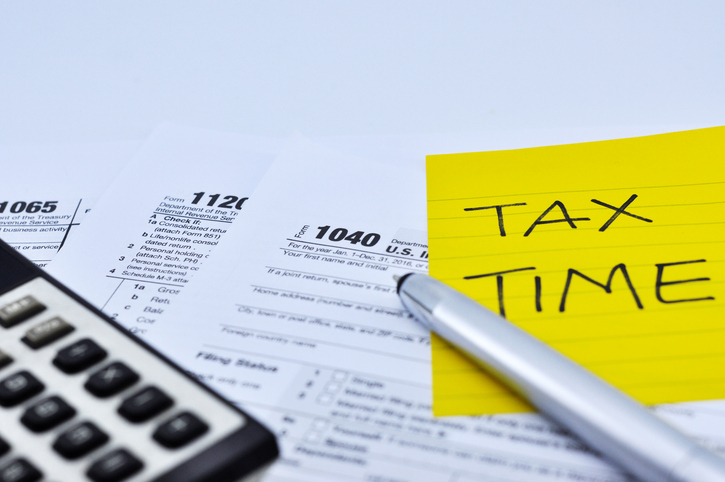2024 Tax Tips: Year-End Business Tax Deductions
The purpose of these strategies is to get the IRS to owe you money. Of course, the IRS will not likely cut you a check for this money (although in the right circumstances, that will happen), but you’ll realize the cash when you pay less in taxes.
Here are six powerful business tax deduction strategies you can easily understand and implement before the end of 2024.
1. Prepay Expenses Using the IRS Safe Harbor
You just have to thank the IRS for its tax-deduction safe harbors.
IRS regulations contain a safe-harbor rule that allows cash-basis taxpayers to prepay and deduct qualifying expenses up to 12 months in advance without challenge, adjustment, or change by the IRS.
Under this safe harbor, your 2024 prepayments cannot go into 2026. This makes sense, because you can prepay only 12 months of qualifying expenses under the safe-harbor rule.
For a cash-basis taxpayer, qualifying expenses include lease payments on business vehicles, rent payments on offices and machinery, and business and malpractice insurance premiums.
Example. You pay $3,000 a month in rent and would like a $36,000 deduction this year. So on Tuesday, December 31, 2024, you mail a rent check for $36,000 to cover all of your 2025 rent. Your landlord does not receive the payment in the mail until Thursday, January 2, 2025. Here are the results:
- ■ You deduct $36,000 this year (2024—the year you paid the money).
- ■ The landlord reports $36,000 as rental income in 2025 (the year he received the money).
You get what you want—the deduction this year. The landlord gets what he wants—next year’s entire rent in advance, eliminating any collection problems while keeping the rent taxable in the year he expects it to be taxable.
2. Stop Billing Customers, Clients, and Patients
Here is one rock-solid, straightforward strategy to reduce your taxable income for this year: stop billing your customers, clients, and patients until after December 31, 2024. (We assume here that you or your corporation is on a cash basis and operates on the calendar year.)
Customers, clients, and insurance companies generally don’t pay until billed. Not billing customers and clients is a time-tested tax-planning strategy that business owners have used successfully for years.
Example. Jake, a dentist, usually bills his patients and the insurance companies at the end of each week. This year, however, he sends no bills in December. Instead, he gathers up those bills and mails them the first week of January. Presto! He postponed paying taxes on his December 2024 income by moving that income to 2025.
3. Buy Office Equipment
Increased limits on Section 179 expensing now enable 100 percent write-offs on most equipment and machinery, whereas bonus depreciation enables 60 percent write-offs. Either way, when you buy your equipment or machinery and place it in service before December 31, you can get a big write-off this year.
Qualifying Section 179 and bonus depreciation purchases include new and used personal property such as machinery, equipment, computers, desks, chairs, and other furniture (and certain qualifying vehicles).
4. Use Your Credit Cards
If you are a single-member LLC or sole proprietor filing Schedule C for your business, the day you charge a purchase to your business or personal credit card is the day you deduct the expense. Therefore, as a Schedule C taxpayer, you should consider using your credit card for last-minute purchases of office supplies and other business necessities.
If you operate your business as a corporation, and if the corporation has a credit card in the corporate name, the same rule applies: the date of charge is the date of deduction for the corporation.
But suppose you operate your business as a corporation and you are the personal owner of the credit card. In that case, the corporation must reimburse you if you want the corporation to realize the tax deduction, which happens on the reimbursement date. Thus, submit your expense report and have your corporation make its reimbursements to you before midnight on December 31.
5. Don’t Assume You Are Taking Too Many Deductions
If your business deductions exceed your business income, you have a tax loss for the year. With a few modifications to the loss, tax law calls this a “net operating loss,” or NOL. And the good news is that NOLs can turn into future cash infusions for your business because you carry 2024 NOLs forward to future years.
What does this mean? Never stop documenting your deductions, and always claim all your rightful deductions. We have spoken with far too many business owners, especially new owners, who don’t claim all their deductions when those deductions would have produced a tax loss.
6. Deal with Your Qualified Improvement Property (QIP)
QIP is any improvement made by you to the interior portion of a building you own that is non-residential real property (think office buildings, retail stores, and shopping centers)—if you place the improvement in service after the date the building was placed in service.
The big deal with QIP is that it’s not considered real property that you depreciate over 39 years. QIP is 15-year property, eligible for immediate deduction using Section 179 expensing, and 60 percent bonus and MACRS depreciation.
To get the QIP deduction in 2024, you need to place the QIP in service on or before December 31, 2024.
Do you have questions about business tax deductions? Schedule a free consultation today!
#tax
Disclaimer: This information on this blog, including this blog post and any comments, are intended for general information only and provided to you “as is” without any representations or warranties, express or implied. Blogs can't substitute for accounting, tax or legal advice specific to your situation which can only be obtained from consultation with a qualified professional.

